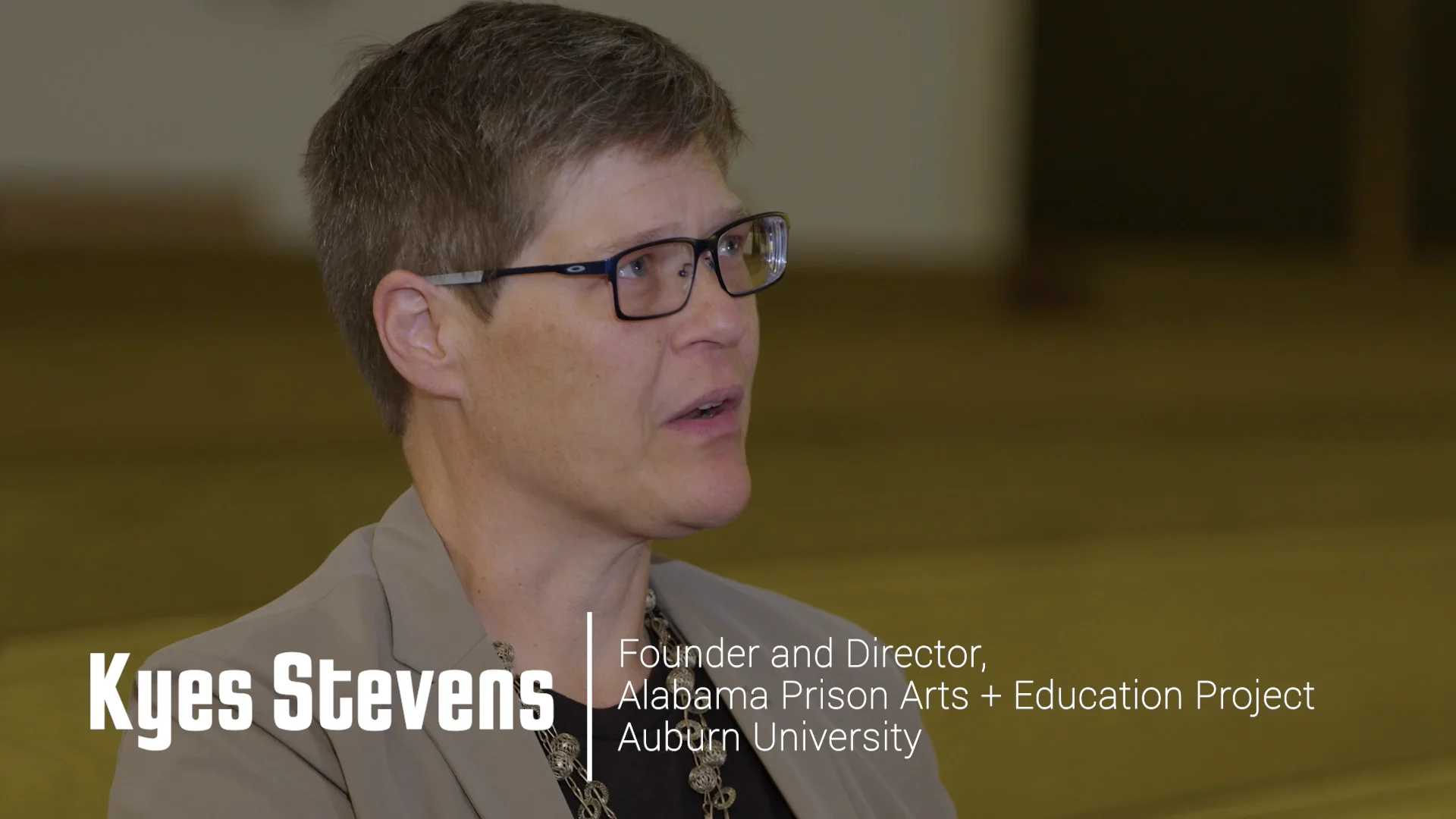My Alabama Story | By Kyes Stevens
#MyAlabamaStory #AHAat50 | December 10, 2024


How do you love a state that does not love you?
I’ve had a love/hate relationship with Alabama since I was old enough to begin understanding the impacts of political, social and cultural structures here. My formative years were spent in Jasper and Waverly. Even as a kid, it was easy for me to see the difference in how people with monetary comfort were treated verses those whose lives were more hard-scrabble. It was also obvious how people with black and brown skin were treated and regarded compared to those with shades of white skin. The pathways and praise available for males and females also distinctly different. The history of here is so rooted in keeping us apart, to situate humanness on a scale of mattering. And this place also made me.
I did not know how to be my authentic self as a young person — and I thought that what I saw in others was their authentic selves. I did not understand the multi-layered influences that dictate how we are allowed to become.
People like me get crushed here — and that crushing can prompt a departure. It can also cultivate a deep wisdom and stamina. My deep love is connected to a youth spent in the woods, exploring the natural world and learning to fall in love with history (the history I was drawn to was never taught to me, of course), learning to intensely see all which surrounds. Cultivating that sight and longing to grow eventually led me to graduate degrees in poetry and women’s history. I went to New York for that. I did not see a place for me here. In fact, so much told me that I was not welcome.
Alabama does not like LGBTQ people, and when you are young and you feel a place is actively destroying people like you, you long to leave that. Not everyone gets to do that. But beyond being a lesbian, Alabama does not like my head and heart, which is unshakably rooted in love, compassion and a drive for a world in which all people have the opportunity to thrive and become.
So why did I come back? Because I am of this place. I am red clay roads and twisted oaks. I am the vanishing natural landscape and its deeply complicated history. There is such beauty here, though — so many incredible stories and histories often hidden. I realized after graduate school that I had to come back. So many like me leave and don’t return, but I could return and felt compelled to be a part of the long history of people fighting for the people of Alabama who are ignored and silenced. This is not empty rhetoric. It is not the common performative trope of so many lobbying for your votes.

The intensity to come home was the same that I had to leave. Poet Margaret Walker writes in “For My People” about building a world that will hold all the people. That poem was not written for me, I am not Margaret’s Walker’s people, but the poem is truth for me, an anthem.
Poet Langston Hughes writes in “Daybreak in Alabama” about red hands and black hands and white hands holding each other. Both poets write about hope, the belief in a better world. This life, my life, my work is supported by these sacred words. I believe in what we can become, what every child and person can become. And without hesitation, that becoming is rooted in our art, our poems and stories, our histories — whether we like them or not, it is all us.
Kyes Stevens is a poet, historian, rescuer of animals, and former volunteer firefighter in her hometown of Waverly. She is also the founder and director of the Alabama Prison Arts + Education Project at Auburn University.
Conceived in 2001, the Project offers access to educational opportunities to people currently and formerly incarcerated across the state. Over the past two decades, the Project has grown from one poet teaching in one prison to a community of hundreds of writers, artists, and scholars teaching the arts and humanities in correctional facilities across Alabama — thus far, reaching some 7,000 individuals in the process.

#MyAlabamaStory #AHAat50
February 21, 2024
I spent much of my childhood hung up on where I lived, or rather, trying to explain to others exactly where I resided. My house was situated in an undefined...